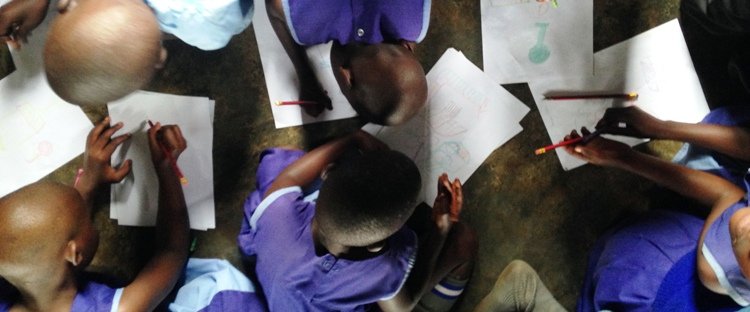Here’s a little story from The Real Uganda’s history book:
Uganda experienced a rather severe drought in 2016/2017. The rains that typically fall in November, didn’t come. These rains allow us to grow the food we eat in January and February. Their absence spelled disaster for scores of rural Ugandans.
The Power of the Collective
However, one women’s group we work with kept busy throughout November and December. Since they’d been working together well during the past year, learning new skills and helping each other out when in need, they decided to pool their resources and plant their crops collectively.
Having concentrated their work in one place, and that place being located in a swampy area, these ladies beat the unexpected drought. They shared the work and the harvest. They ate well during the drought and even had excess to sell in the local market. The ladies grew 1.8 acres of sweet potatoes and .4 acres of greens, together. Beyond household consumption, sales amounted to about $140 and were divided between 16 women.
Yes, this is less than $10 per woman. When asked if they were happy with the results, they just laughed and said:
- we survived the drought with food;
- even after eating well, we had excess to sell; and
- after selling the excess, we bought seeds for the current planting season.
Way to to go ladies!!
RELATED: 4 Ways Ugandans are Coping with the Effects of Climate Change
How Does This All Come Together?
Through the efforts of a community-based organization, called Lugacraft Uganda, the women of Kawuku were organized for success. Run by Robert and Vivian, Lugacraft works to empower Ugandan youth and women. Their work focuses on skills development for people in rural Buikwe District. Lugacraft leased the land the women are cultivating. It provided start-up funds for manure and herbicide. It offered advice on fast maturing crops and nutrition.
Lugacraft worked side by side with these women.
The Real Uganda is proud to work with Lugacraft and 8 other locally-led, community-based organizations just like it. These very small, under-resourced initiatives are run by people with big hearts and big future plans. Because Robert grew up here, he has a vested interest in the people and their collective development. Because he attended university, he has access to resources local community members simply don’t.
Beyond gardening, Lugacraft teaches handicraft skills and baking in order to help local women earn income for their families.
Want to meet inspiring Ugandans like Robert and Vivian? Want to work alongside motivated rural people as they improve their lives? Think about volunteering in Uganda, with The Real Uganda.
Spend some time on this website to get to know what we do and why we do it. Then fill in our online application form.
It’s that easy.
RELATED: This is how a Ugandan lives in the world
By the way, our 2024 rains will be here in March and this coming year looks to be a great one for Ugandan farmers. If gardening is your thing and you want to volunteer with the women’s group in Kawuku, consider joining our Agriculture and Conservation Program.














Trackbacks/Pingbacks